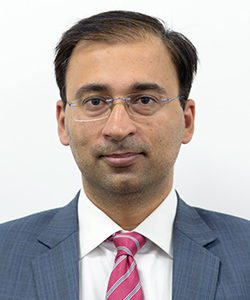There is a great potential in India’s waste-to-energy industry, given the demand to resolve the mounting waste problems of India
India generates about 70 million tons of municipal waste every year. To tackle the ever rising menace of municipal solid waste, the government of India is encouraging setting up of waste to energy (WtE) projects throughout the country.
Indian Renewable Energy Development Agency estimates indicate that India has so far realized only 2% of its waste-to-energy potential. To date, the installed capacity of WtE plants in India is about 138.3MW. Niti Aayog, the government’s planning division, also has given a push to address the issue of municipal solid waste by WtE incinerators for bigger municipalities, and composting methods of waste disposal for small towns and semi-urban areas. It also suggested the establishment of a WtE Corporation of India (WECI) “to speed up the process of cleaning up municipal solid waste” through public-private partnerships (PPPs).
Just like China, a majority of the factors required for the growth of WtE plants are already present in India, such as: (1) a guaranteed market for electricity consumption; (2) huge municipal solid waste generation; and (3) large-scale urban development. Needless to say, China is the only country that has greater scale of urbanization and urban waste generation than India, so Chinese companies have an inherent advantage in this industry compared to even local players. Owing to this advantage, Chinese companies have already secured projects in several Indian cities to build and operate WtE plants.
Typical structure

Partner
Link Legal India Law Services
WtE projects in India are built on PPPs. The most commonly used PPP model for WtE projects seen in India is Build-Own-Operate-Transfer. The developers enter into concession agreements with tendering agencies such as urban local bodies (ULBs) for collection and transportation of municipal solid waste to the plants, which is then used for energy generation. The electricity generated from the waste is then sold to the distribution companies by executing power purchase agreements (PPAs).
The concession agreements either contemplate setting up a solid waste management plant to treat a certain amount of waste and then using part of the treated/segregated waste to generate electricity, or directly setting up a WtE plant to generate electricity from the treated/segregated waste delivered by the ULBs.
Bankability issues

Partner
Link Legal India Law Services
The development of WtE plants in India is at a relatively nascent stage and, like any new infrastructure project sought to be implemented on a large scale, this, too, has witnessed a few problems. A few issues that have been witnessed by the WtE developers in India are
listed below.
As pointed out above, setting up a WtE plant in India entails entering into two separate agreements, i.e., the concession agreement with a ULB and the PPA with power distribution companies. While it would be ideal that the provisions of both these documents be “back to back” (such that risks pass through from one contract to the other) so as to safeguard the interest of the developer, this is not the case. Major provisions in the documents such as dispute resolution, force majeure, changes in law, etc., are not back to back. While the concession agreement provides for restitution and a comprehensive change in law protection, the PPA only provides that the regulator would decide the compensation, and there is no guarantee provided for restitution.
You must be a
subscribersubscribersubscribersubscriber
to read this content, please
subscribesubscribesubscribesubscribe
today.
For group subscribers, please click here to access.
Interested in group subscription? Please contact us.





















